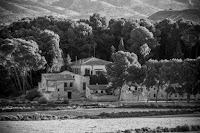Autocrats, Republics and Monarchs

I'm sure that you remember that Charles I, King of England, Scotland, and Ireland had a bit of a problem with Oliver Cromwell. Charles was executed on a cold day in January 1649 and a Republic declared. Cromwell headed up the Republic as Lord Protector and, on his death in 1658, the title passed to his son, Richard. The army overthrew Richard in 1659 and invited Charles I's son to be King. It was all made official with Charles II's crowning in 1661. His first parliament ordered that Cromwell's body, and those of another couple of people responsible for the death of the old King, be dug up and hung. The heads were then stuck on a 6 metre long poles near Westminster Hall. Cromwell's head kicked around until 1960, when it was buried at Sidney Sussex College in Cambridge When the Hapsburg, Carlos II of Spain, died in 1700 he left no heir. The Bourbon family took over and they have kept Spain in monarchs ever since despite a couple of hiccoughs along the way. For ins...



